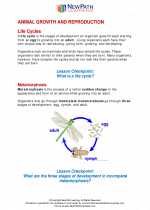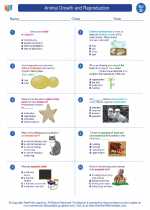Blood Sugar Regulation
Blood sugar regulation is the process by which the levels of glucose in the blood are maintained within a narrow range. Glucose is the body's primary source of energy and it is important for the body to regulate its levels to ensure proper functioning.
Importance of Blood Sugar Regulation
Proper blood sugar regulation is crucial for overall health. When blood sugar levels are too high (hyperglycemia) or too low (hypoglycemia), it can lead to serious health complications. The body has mechanisms in place to keep blood sugar levels within a healthy range, primarily through the actions of insulin and glucagon.
Insulin and Glucagon
Insulin is a hormone produced by the pancreas that helps to lower blood sugar levels. When blood sugar levels rise after a meal, the pancreas releases insulin to help cells take in and use the glucose for energy production or storage. On the other hand, glucagon is a hormone that helps raise blood sugar levels. When blood sugar levels drop, the pancreas releases glucagon, which stimulates the liver to release stored glucose into the bloodstream.
Regulation of Blood Sugar Levels
Several factors influence blood sugar levels and its regulation:
- Diet: The types and amounts of food consumed affect blood sugar levels. Carbohydrates, in particular, have a direct impact on blood sugar levels.
- Physical Activity: Exercise and physical activity can help lower blood sugar levels by increasing the body's need for glucose to fuel muscle activity.
- Hormonal Regulation: Hormones such as insulin, glucagon, cortisol, and adrenaline play a key role in regulating blood sugar levels.
- Liver Function: The liver plays a crucial role in maintaining blood sugar levels by storing and releasing glucose as needed.
Disorders of Blood Sugar Regulation
Imbalances in blood sugar regulation can lead to various health conditions, including diabetes. Diabetes is a chronic condition characterized by high blood sugar levels, either due to insufficient insulin production or the body's inability to effectively use the insulin it produces.
Study Guide
To understand blood sugar regulation, it is important to focus on the following key points:
- Define blood sugar regulation and its significance.
- Explain the roles of insulin and glucagon in regulating blood sugar levels.
- Identify the factors that influence blood sugar levels, including diet, physical activity, hormonal regulation, and liver function.
- Discuss the disorders associated with blood sugar regulation, particularly diabetes.
- Explore the importance of maintaining balanced blood sugar levels for overall health and well-being.
Understanding blood sugar regulation is essential for maintaining a healthy lifestyle and preventing related health complications.
.◂Science Worksheets and Study Guides Fourth Grade. Animal Growth and Reproduction

 Activity Lesson
Activity Lesson
 Worksheet/Answer key
Worksheet/Answer key
 Worksheet/Answer key
Worksheet/Answer key
 Worksheet/Answer key
Worksheet/Answer key
 Worksheet/Answer key
Worksheet/Answer key
 Vocabulary/Answer key
Vocabulary/Answer key
 Vocabulary/Answer key
Vocabulary/Answer key
 Vocabulary/Answer key
Vocabulary/Answer key
 Vocabulary/Answer key
Vocabulary/Answer key
 Vocabulary/Answer key
Vocabulary/Answer key
